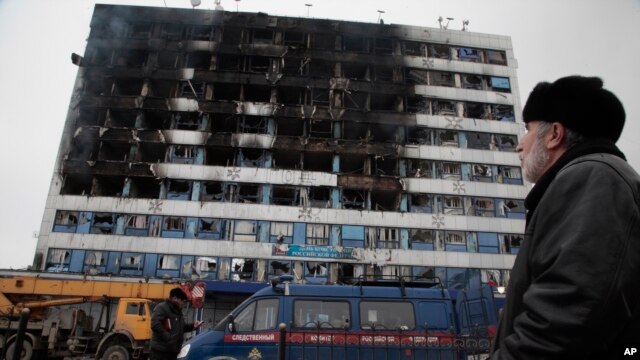Every November members of the public in Britain (and many Commonwealth countries) pin paper poppies to their lapels in memory of the victims of a war fought a century ago.
British expatriates, like me, get strange looks at this time of year. Why would anyone want to wear a red paper flower as a symbol of wartime sacrifice?
There isn’t a simple answer. Poppies are worn for many –– usually not nationalistic or militaristic –– reasons. And there are also those who don’t like the tradition at all, and see it as unnecessarily “obligatory”.
Indeed, they are such a ubiquitous sight in the UK that a politician or public personality appearing on TV without a poppy in the week before November 11 can make front page headlines.
In purely practical terms, each poppy represents a small cash donation to the
Royal British Legion, a charity that looks after the welfare of former servicemen and women.
The last survivors of the
1914-1918 war, who came home wearing the poppies that flourished in the battered Flanders countryside, may be dead and buried. But Britain's wars continued, and the Legion still has work to do.
‘Missing, presumed dead’
There are emotive reasons too.
The breathtakingly vast new memorial at Notre-Dame-de-Lorette, due to be inaugurated on November 11, lists the names of 580,000 men of all nationalities who died in the northern French Pas-de-Calais region during the First World War.
It is a stark reminder of the horrific scale of a conflict that left few French, British or German families untouched.
But sadly the list of names at Notre-Dame-de-Lorette is incomplete, for the simple reason that many of the men killed in the Pas-de-Calais are commemorated elsewhere.
One of the men missing from the Notre-Dame-de-Lorette memorial is Rifleman
Albert Charles Todd, my great uncle.
Albert, who died in the Pas-de-Calais, is commemorated at the nearby
Thiepval Memorial to the 75,000 (British and South African) victims of the 1916 Battle of the Somme whose bodies were never found and have no grave. Thiepval is in the Somme region.
A colossal blood-letting
Albert’s story is fairly typical. At the outbreak of war the teenager lied about his age and was enthusiastically welcomed into the British Army (conscription was not introduced until 1916 in the UK).
By June 1916 and now 18 years old, the young man from the English seaside town of Hastings found himself in northern France serving with the 12th Battalion (The Rangers) of the London Regiment.
Their objective on the first day of the Battle of the Somme – July 1, 1916 – was Gommecourt, a heavily fortified German-held village at the far northern flank of the Somme battle front.
It was a diversionary attack designed to keep pressure off the main assault to the south. But it was a colossal blood-letting that mirrored the tragic failure of the larger offensive.
July 1, 1916 remains the bloodiest 24 hours in the history of the British Army, which suffered 57,400 casualties – including 20,000 dead – in one day.
The battle would grind on until November and claim more than 300,000 French, British and German lives, with little territorial gain for the Western Allies.
The Rangers Battalion of the London Regiment lost two-thirds of its strength on July 1, and Albert was one of the men who didn’t answer his name at roll-call that evening.
His body, like so many others, was never recovered.
The lingering consequences
Albert’s parents were informed their son was “missing, presumed dead”.
It was of course a devastating shock for the family, not least for Albert’s ten-year-old brother Bill – my grandfather – for whom the pain of losing his big brother would last a lifetime.
Bill’s sons – my father and my uncle – grew up hugely conscious of this family tragedy, and this awareness remains in the third (and fourth) generation.
The story of 18-year-old Albert’s death, and the impact it had on the family, is what I think about when I buy a poppy and pin it to my jacket on November 11.
It isn’t a jingoistic celebration of Britain’s wartime exploits, nor is it a symbol of national or even family pride.
It's more a reminder that the human cost of war extends well beyond the battlefields – a lasting and painful legacy for the families and loved-ones of those who are killed or suffer the often devastating psychological consequences.
Wounds heal and pain recedes over generations, but the brutal, destructive and lingering consequences of war should never be forgotten.







